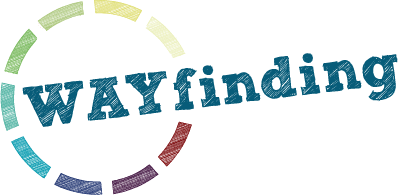| Anne Williamson |
A friend this week wrote a beautiful reflection on social media on how being a mother had changed her. She spoke of learning to “dig deep when I think I have nothing left to give… and I find depths and resources I never knew I had.” She also spoke of fierceness, appreciating the moment, and “the art of going with the flow.” Then she asked other mamas to chime in.
Others did. I did too and wrote, “Watching my daughters’ emotions change so rapidly has made me aware of, in a deeper way, the fluid nature of my own emotions. That they aren’t always representative of the truth… that they just are. Notice them, accept them, move on.”
Of course, this is not always easy. Last week in WAYfinding, participants listened to a podcast by Rob Bell on the Wisdom Tradition. In it he talked about how, when something happens, our first and very normal, human response is a feeling: anger, frustration, sadness, joy, etc. He says this is okay – feel it, don’t repress it. And then, for Bell, curiosity is the second response that helps us explore this feeling and its accompanying experience. This is true but feelings, often, are not so easily managed. They can overwhelm us – so much so, that it is hard to get to the questions.
This is where watching kids, especially three and four year olds I imagine, is so helpful. You begin to notice the illusionary nature of many of our feelings. You begin to realize how a feeling that appears (dramatically) true one moment can easily disappear the next.
In his book, Why Buddhism Is True: The Science & Philosophy of Meditation and Enlightenment, Robert Wright uses evolutionary psychology to support the idea that many of our feelings are illusions. After laying out his argument – I believe well – he says, “If you accept the idea that many of our most troublesome feelings are in one sense or another illusions, then meditation can be seen as, among other things, a process of dispelling illusions” (39).
This is the argument we’ll be exploring in groups this week. It’s an argument that, if true, is obviously helpful on an individual level. But, we’ll also explore the ways it may be helpful communally, even politically.

